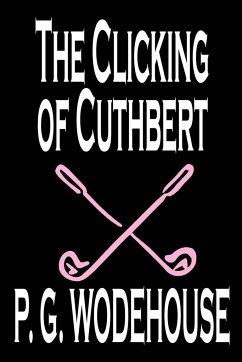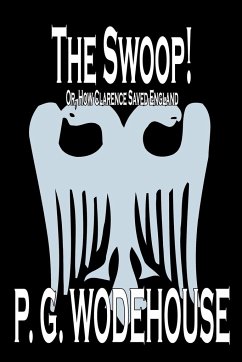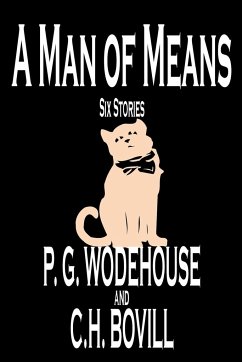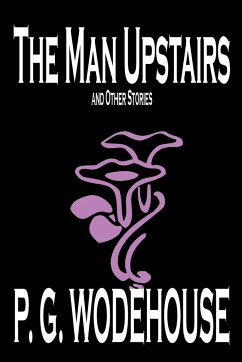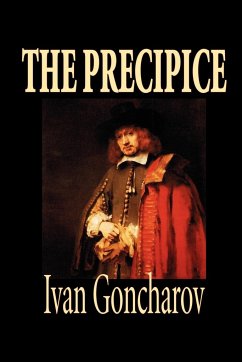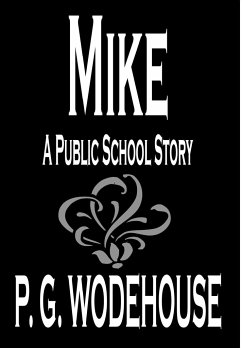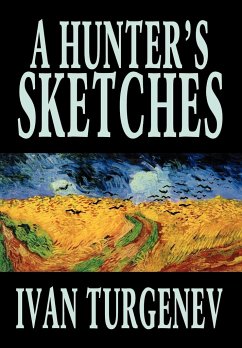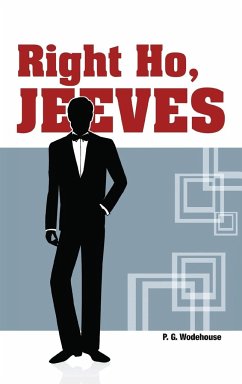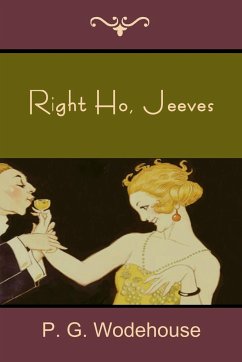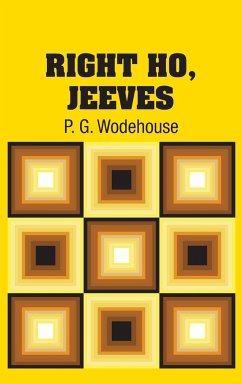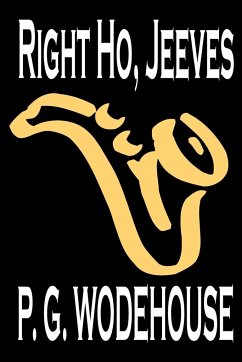
Right Ho, Jeeves by P. G. Wodehouse, Fiction, Literary, Humorous
Versandkostenfrei!
Versandfertig in 1-2 Wochen
17,99 €
inkl. MwSt.

PAYBACK Punkte
9 °P sammeln!
I would urge you to get hold of the complete novel Right Ho, Jeeves, where you will encounter it fully in context and find that it leaps even more magnificently to life. I don't know if you have had the same experience, but the snag I always come up against when I'm telling a story is this dashed difficult problem of where to begin it. It's a thing you don't want to go wrong over, because one false step and you're sunk. I mean, if you fool about too long at the start, trying to establish atmosphere, as they call it, and all that sort of rot, you fail to grip and the customers walk out on you. ...
I would urge you to get hold of the complete novel Right Ho, Jeeves, where you will encounter it fully in context and find that it leaps even more magnificently to life. I don't know if you have had the same experience, but the snag I always come up against when I'm telling a story is this dashed difficult problem of where to begin it. It's a thing you don't want to go wrong over, because one false step and you're sunk. I mean, if you fool about too long at the start, trying to establish atmosphere, as they call it, and all that sort of rot, you fail to grip and the customers walk out on you. Get off the mark, on the other hand, like a scalded cat, and your public is at a loss. It simply raises its eyebrows, and can't make out what you're talking about. And in opening my report of the complex case of Gussie Fink-Nottle, Madeline Bassett, my Cousin Angela, my Aunt Dahlia, my Uncle Thomas, young Tuppy Glossop and the cook, Anatole, with the above spot of dialogue, I see that I have made the second of these two floaters. I shall have to hark back a bit. And taking it for all in all and weighing this against that, I suppose the affair may be said to have had its inception, if inception is the word I want, with that visit of mine to Cannes. If I hadn't gone to Cannes, I shouldn't have met the Bassett or bought that white mess jacket, and Angela wouldn't have met her shark, and Aunt Dahlia wouldn't have played baccarat. Yes, most decidedly, Cannes was the point d'appui. Stephen Fry, in an article titled "What ho! My hero, PG Wodehouse", remarks on the popularity of the work: The masterly episode where Gussie Fink-Nottle presents the prizes at Snodsbury grammar school is frequently included in great comic literature and has often been described as the single funniest piece of sustained writing in the language.. .





